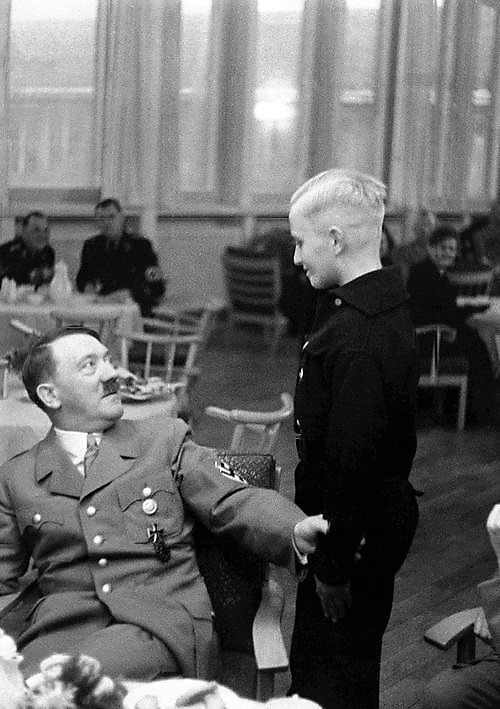107: Which is the second commandment?
A.: The second commandment is, Thou shalt not make unto thee any graven image, or any likeness of any thing that is in heaven above, or that is in the earth beneath, or that is in the water under the earth. Thou shalt not bow down thyself to them, nor serve them: for I the Lord thy God am a jealous God, visiting the iniquity of the fathers upon the children unto the third and fourth generation of them that hate me; and shewing mercy unto thousands of them that love me, and keep my commandments.
Dr. Morecraft starts us out asking what the is identity of the Second Commandment?
Not all of Christendom is agreed that the commandment given above is the second commandment. Roman Catholicism considers Exodus 20:4–6, which we know as the second commandment, to be a part of the first commandment. Lutheran churches are of the same opinion as the Roman Catholic Church. (3)
Two words should be said about the Roman Catholic and Lutheran listing of the commandments: (1) The division of the tenth commandment on coveting into two commandments is artificial and unconvincing; and (2) The inclusion of the second commandment in the first results from a failure to see the unique emphasis of the second commandment distinct from the emphasis of the first. In the first commandment we are instructed to worship and serve God alone, and in the second commandment we are instructed to worship and serve God alone only by the way in which God has commanded us to worship Him. The first commandment is concerned with the object of worship and the second commandment is concerned with the manner of worship. (3-4)
The Second Commandment in Exodus 20:4–6 is comprised of a prohibition, a declaration of God’s perfections, and a sanction. The prohibition is twofold and the sanction is twofold. The two prohibitions are: (1) Do not make for yourselves idols and graven images, and (2) Do not worship or serve God by means of these images.
In the declaration of God’s perfections, God reveals to us that He is “the Lord your God” and that He is “a jealous God.” The sanctions include a curse and a blessing. (1) The curse: God will visit with judgment “the iniquity of the fathers on the children, on the third and forth generations of those who hate Me.” (2) The blessing: God will show “lovingkindness to thousands, to those who love Me and keep My commandments.”
The prohibition against graven images and idols was unique in the ancient world....“By prohibiting the use of graven images, God was separating the Israelites from the surrounding cultures. It was always a mark of rebellion when the Israelites began to worship graven images.”6 North, The Sinai Strategy, 27. (6)
The second commandment made peace treaties and alliances with pagan nations impossible for the covenant people as long as they remained faithful and avoided images. In the ancient world peace treaties were religious ceremonies conducted by the priests of the gods of each city-state or society entering into the alliance, so that the alliance was between their gods as well as their peoples. (6)
The function of an image in the ancient world and in our modern world is this: the image represents the deity, it is a point of contact between the deity and the worshipper....By the use of images and idols a person can come into contact with divine power and use it for their own purposes. When Aaron and Jeroboam, in the history of Israel, made graven images in the form of bulls, symbols of strength and fertility, their intention was not to portray the likeness of the God they sought to serve, but only to control the power of the Lord. (7)
In making a graven image or idol, man is playing the central role in establishing a point of contact between God and himself. Man himself becomes god by doing so, for he is imitating God in making an image of himself, as God made man in His image. (8)
God hates idols and graven images because they are “a means of negating the Creator-creature distinction. Men believe that they can approach God, placate God, and even control God through bowing to an idol.”13 North, The Sinai Strategy, 32. (8)
Today in religious jargon, our word for graven image and idol is icon, a mystical contact with the deity or power it represents. This is “the theology of magic” and superstition. And in the ancient world as well as today people are often and easily lured into substituting magic for Christian faith, calling magic “faith,” and a theology of magic “Christianity.” (9)
To bow down before a deity is to walk in submission to his laws and ordinances: “You shall not do what is done in the land of Egypt where you lived, nor are you to do what is done in the land of Canaan where I am bringing you; you shall not walk in their statutes” (Lev. 18:3). ...
"Making a graven image means to participate in the creation of a new world order. This new world order is in opposition to God’s world order. A different god is elevated to a position of sovereignty. In the Old Testament era, this meant that some demonic being became the source of health and prosperity. In modern civilization, which is the historical product of Christianity, most men no longer worship demons explicitly. They attribute sovereignty to impersonal forces of history (Marxism), or forces of the unconscious (Freudianism), or the spirit of the Volk (Nazism), or the impersonal forces of nature (Darwinism’s explanation of pre-human evolution). ...
"Satan did not tempt Adam and Eve to worship him openly; he only asked them to violate the law of God. The violation of God’s law was the equivalent of worshipping Satan....The worship of man and his works is essentially the worship of Satan. In short, man the idol-maker and idol-worshipper is man the Satan-worshipper. ...
"The construction of a world order which is opposed to the one set forth by God is therefore theologically comparable to constructing a graven image. There may be no official graven image at first. Men may not be asked to bow down to it at first.
But the substitution of the ordinances of man for the ordinances of God is the heart of idol-worship. It is an assertion of man’s autonomy, which ultimately results in the subordination of man to the ordinances of Satan. The society of Satan does not need graven images to make it operational." 18 North, The Sinai Strategy, 38–39. (11-12)
First, to try to capture the Lord God in an image is to misunderstand HIS SPIRITUALITY. Mankind is forbidden to make graven images of God because “God is Spirit,” uncreated, personal, infinite, nonphysical and nonmaterial (John 4:24) who lives eternally “in unapproachable light, whom no man has seen or can see. (12)
The foundation of Christian worship of God is the truth that “God is Spirit.” He is a living, personal God, who speaks, acts, plans and loves, who possesses self-consciousness and self-determination. Being uncreated, immaterial and non-physical, He does not have a body like human beings. He is a living, intelligent, invisible, active, tri-personal God, without a created form of any kind. God is His perfections. As Spirit, He is infinite, immense and omnipresent. (13-14)
[Second] To try to capture the Lord God in an image is to misunderstand HIS FREEDOM AND SOVEREIGNTY. A graven image is man’s attempt to make the Incomprehensible comprehensible. (14)
A clear illustration of man’s failure to understand the freedom and sovereignty of God is found in 1 Samuel 4. Israel had suffered a heavy defeat by the Philistines....The ark is brought....But, instead of being victorious in the next battle, Israel suffered a second serious defeat, and the ark itself was captured by the Philistines. (15)
[Third] To try to capture the Lord God in an image is to misunderstand HIS MAJESTY. “His majesty is reduced to a travesty when we attempt to represent him by any visible image.”22 John Calvin, John Calvin’s Sermons on the Ten Commandments, ed. and trans. by Benjamin W. Farley (Grand Rapids, MI: Baker Book House, 1980), 66. (16)
[Fourth] To try to capture the Lord God in an image is to misunderstand HIS COVENANT. (20)
The Lord is not tangible to His people, as idols are to those who worship them, and yet, there is no god as close to his worshippers as the Lord is to those who love and worship Him. (20)
The concern of the second commandment is with the worship of God, or more specifically, the manner in which God is to be worshipped. The first commandment instructs us to worship the Lord God alone and no one or nothing else. And now the second commandment instructs us in the way God is pleased to be worshipped, i.e., only in the way He has revealed in His Word and in no other way, for God rejects all manner of worship that originates in the mind of man. (20-21)
So then, in forbidding the most extreme corruption of the homage and worship we give the one true God, i.e., image-worship, God is forbidding all manner of worship of Him that is inconsistent with His character and His revealed will, i.e., not in spirit and in truth. (21)
This principle, “in spirit and truth” (John 4:23), bears directly upon the manner of our worship. “If worship must be consonant with the nature of God, it must be in accord with what God has revealed himself to be and regulated as to content and mode by the revelation God has given in holy Scripture.” 31. John Murray, “The Worship of God in the Four Gospels,” The Biblical Doctrine of Worship: A Symposium, 93. (22)
If God is to be worshipped at all, HE MUST BE worshipped in spirit and truth (John 4:24)....“Must” is dei in Greek, denoting the element of necessity in ethical and religious obligations, backed by Divinely revealed statutes (Lev. 5:17). It is not only all men’s DUTY to worship God in spirit and truth, it is the ONLY WAY man may worship God! (22)
The point of the second commandment is that because the one true God desires true worshippers (John 4:22–24), the regulating principle for the worship of that God is His own “desires.” The only way to worship Him truly is to do so according to His
desire and in the manner He desires. It must be in accord with His revealed character and therefore not merely in externally correct forms, but sincerely from the heart with our whole person. (23)
The second commandment is the regulative principle for man’ worship of God. It states this principle in the imperative as Deuteronomy 12:32 states it in the indicative: “Whatever I command you, you shall be careful to do; you shall not add to nor take away from it.” (24)
The point of this Biblical principle by which we are to regulate all our worship of God is this:
Whatever is commanded is required.
Whatever is forbidden is prohibited.
WHATEVER IS NOT COMMANDED IS FORBIDDEN.
We are able to determine from the Bible what God has commanded us to do in our worship of Him by:
Express Commands
Approved Examples
Necessary Inferences
(25-26)











 RSS Feed
RSS Feed















